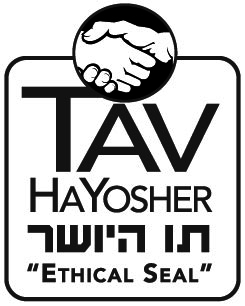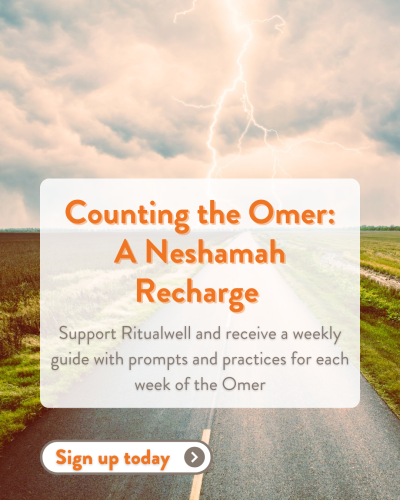Sanctifying Ethical Consumption
It is traditional in Jewish ritual to make blessings before and after eating something. It is a way to express appreciation to God for our sustenance.
Today, as consumers, we have the option to buy ethically. With the understanding that the production of many food products involve the exploitation of workers, animals, and the environment, some people who have the ability to make ethical consumer decisions will do so.
Buying food that has been produced with special sensitivity and minimal harm to workers merits an additional kavannah, or meditation, before consumption.
Regarding workers in the food industry, the Torah contains many commandments that relate to our obligation to our fellow human beings, including dozens of laws to ensure a labor system that is just and functions smoothly. The prophets implore us to pair our ritual deeds with care for the widow, the orphan, and those in need.
In my experience working with Uri L’Tzedek’s Tav HaYosher (Ethical Seal) program, I have unfortunately learned that a large segment of the kosher restaurant and factory industry do not ֿ abide by local labor laws and do not treat their workers according to the standards of Jewish law. True, much of the Jewish community cares deeply about the laws between the individual and God. How, though, can we as Jews forsake the laborer? How could we cheat in our business practices?
Using this ritual, we can employ spiritual intention in becoming ethical consumers, both to acknowledge the centrality of justice and ethics in Jewish tradition and law and to think about those individuals and communities who are deeply involved in ethical production. By ritualizing this, we make the act of ethical consumption a crucial, positive, and holy deed.
Whether “ethical consumption” means buying ethically sourced meat or eating from kosher establishments that have been awarded the Tav HaYosher, it can be a powerful communal or personal experience to acknowledge that decision with a ritual kavannah, or meditation, to recite before using or eating something that was produced in an ethical way, and to acknowledge the workers who have helped bring that food from the farm to your table.
*************************
English:
God, the One who does justice in the world and promotes a world of justice, may it be known that I am consuming something that was produced through just means, as I strive to obey the Torah law of “do what is right and good in the sight of the Lord”(Deut. 6:18). In the same way that this food item was prepared according to the upright tenets of Jewish law and tradition and in just and ethical working conditions, may the rest of the world eventually prevail with justice as it is written, “To repair the world under the sovereignty of the Lord”.
God, the One who does justice in the world and promotes a world of justice, may it be known that I am consuming something that was produced through just means, as I strive to obey the Torah law of “do what is right and good in the sight of the Lord”(Deut. 6:18). In the same way that this food item was prepared according to the upright tenets of Jewish law and tradition and in just and ethical working conditions, may the rest of the world eventually prevail with justice as it is written, “To repair the world under the sovereignty of the Lord”.
I appreciate and acknowledge those workers who have labored to bring this food to my table. May it be known that I commend those who have made conscious efforts to produce or buy this food in an upright way.
May they be blessed with the ability to do many more upright deeds and be partners with the Creator in making the world a more just place, as it is written, “The wicked man earns illusory wages, but he who sows righteousness has a true reward”. (Proverbs 11:18)
Hebrew:
ה’, מלך אוהב צדקה ומשפט, המקדם עולם של צדק, שיהיה ידוע שאני אוכל/ת את האוכל הזה ושהוא הגיע אליי באמצעות של בצדק, כפי שאני שואפ/ת לשמור על חוק התורה “ועשית הישר והטוב לפני ה’ .” באותה צורה שהאוכל הזה הוכן על פי עקרונות החוק ומסורת יהודית ובתנאי עבודה ישרים, כך שאר העולם בסופו של דבר יצליח להתנהג בצדק, כמו שכתוב, “לתקן עולם במלכות שקי
אני מעריכ/ה את העבודה הקשה של בני אדם אשר עמו כדי לייצר את המזון שאני עומד/ת לאכול. יתר על כן, יהיה ידוע שאני מודה לכל מי שהתאמץ בכל כוחיו כדי לתת לי את האוכל הזה בצורה ישרה
יהי רצון שיהיה לבני אדם האלו את היכולת לעשות הרבה בעתיד בצדק ועם רוח של חסד ורחמים, ולהיות שותפים עם בורא עולם בתיקון העולם למקום של צודק אמיתי , כמו שכתוב: “רשע עשה פעלת שקר וזרע צדקה שכר אמת













